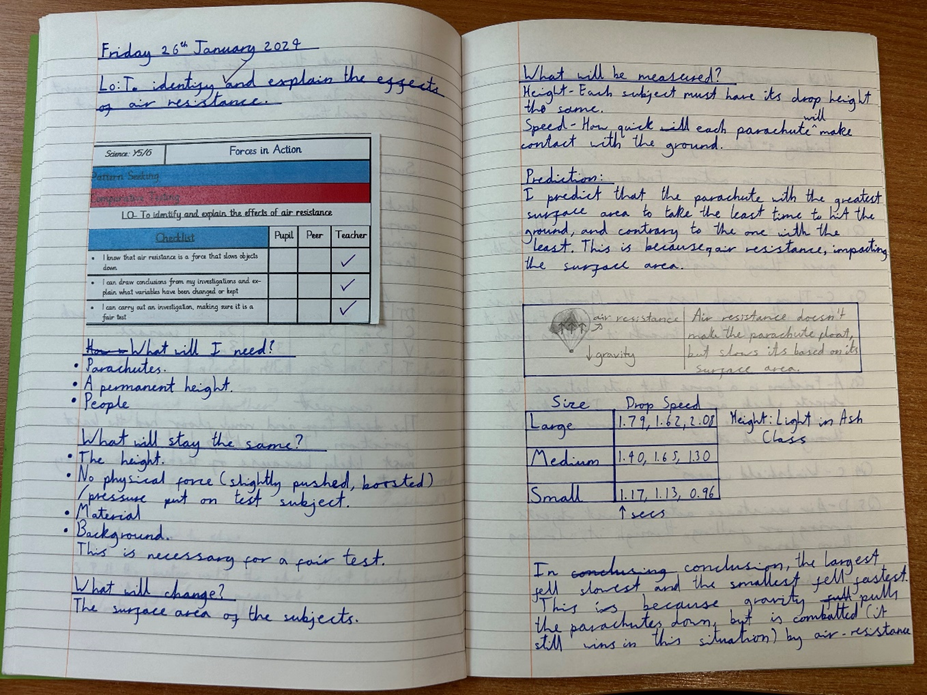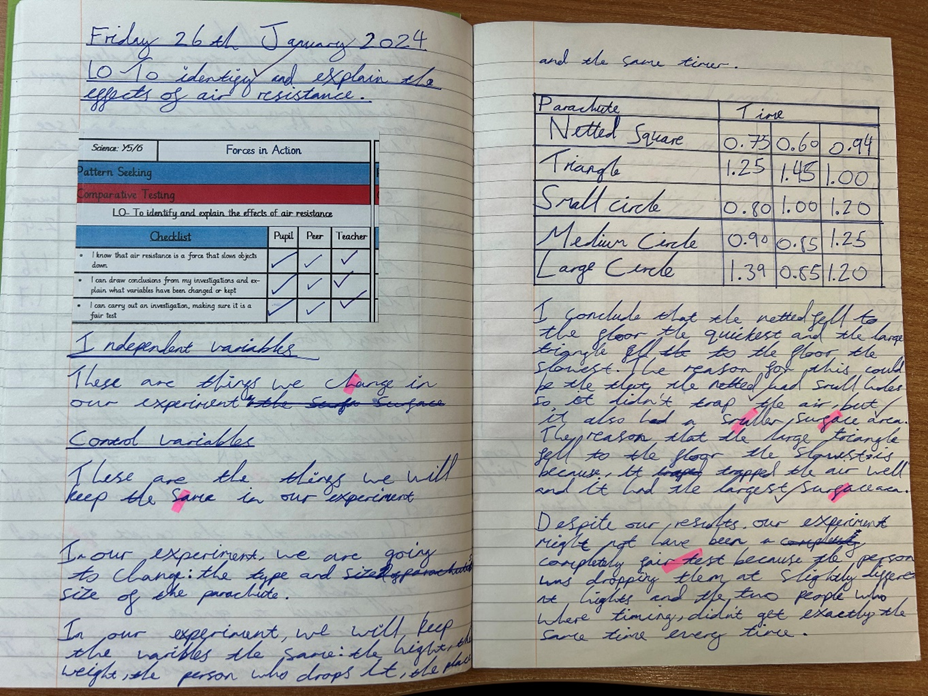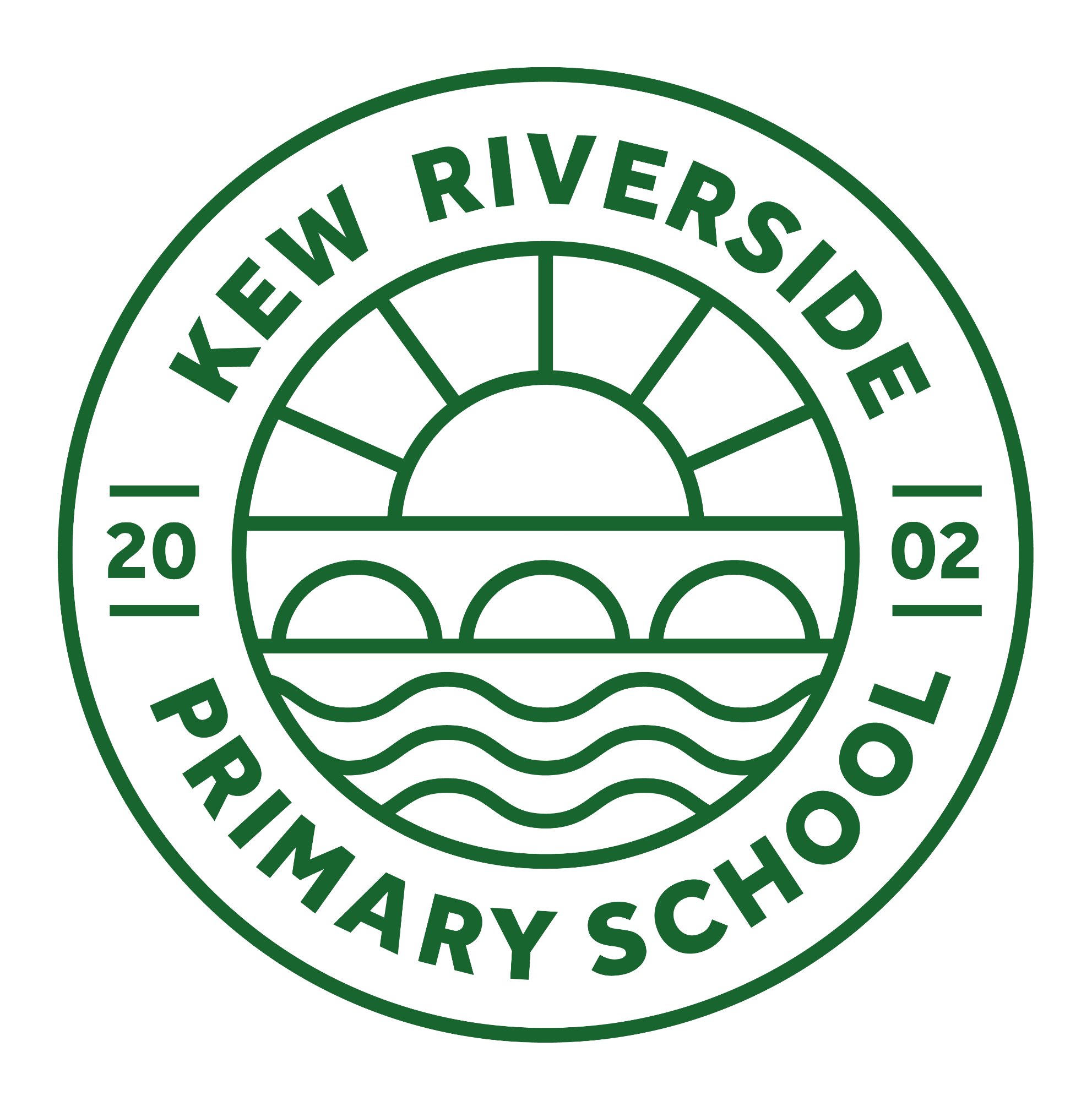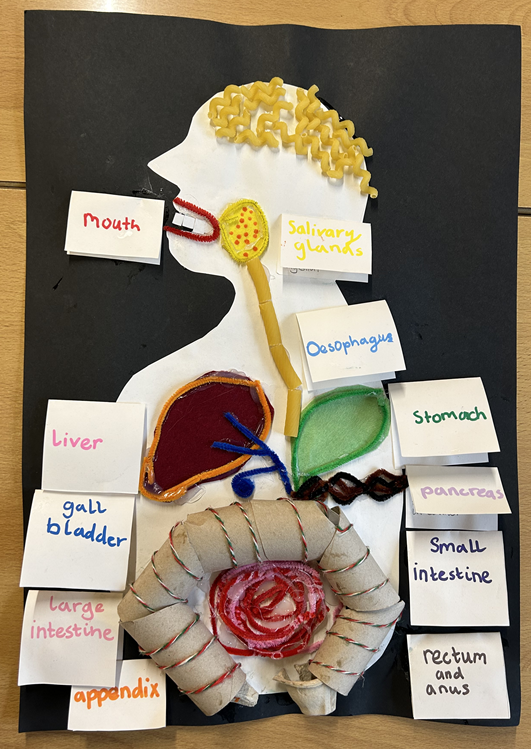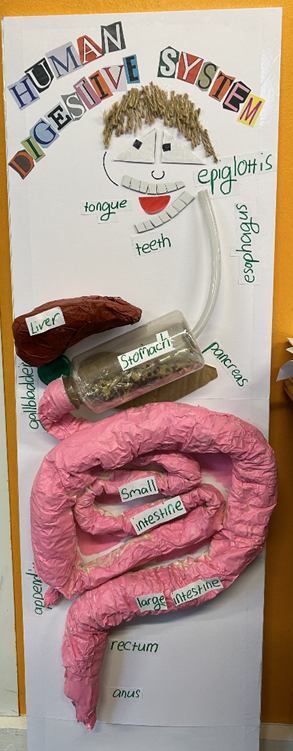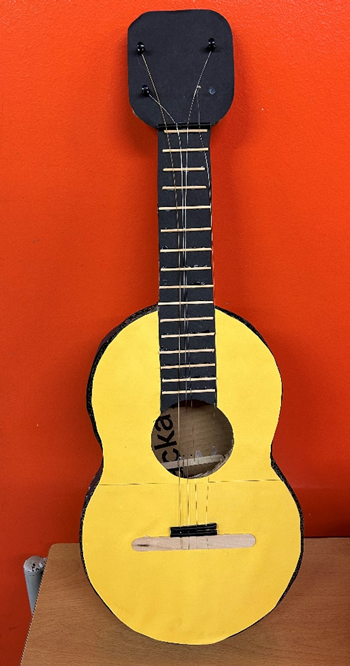Science
Intent
At Kew Riverside Primary School, we recognise the importance of Science in every aspect of daily life. As one of the core subjects taught in Primary Schools, we give the teaching and learning of Science the significance it requires. Science at Kew Riverside Primary School aims to develop an engaging, practical and high-quality curriculum that inspires the next generation to succeed and shine in science. We do this through following the aims of the national curriculum and fostering a healthy curiosity and interest in the sciences.
We ensure that children are working scientifically and building upon skills and questions throughout their lessons. This is consistent and visible throughout our curriculum by using equipment, conducting investigations and conclusions and promoting curiosity about their surroundings. Teachers plan engaging and exciting lessons based on a scheme that we have embedded throughout the school, whilst also adapting each lesson to meet the needs of individual children. Our school intends to make learning in Science accessible to all. The Science curriculum will encourage all pupils to develop a positive learning approach as well as being linked to our school values.
In line with the National Curriculum, at Kew Riverside, our Science curriculum aims to ensure that all pupils have opportunities to:
- Have meaningful learning experiences that embed scientific principles within real-world contexts relevant to their own lives
- Develop and revisit subject knowledge across a range of biological, physical and chemical scientific areas
- Learn and utilise a range of scientific enquiry skills, such as observing closely and pattern seeking, through investigations that they plan themselves.
- When equipped with both subject knowledge and scientific enquiry skills, our children will be well-placed to make sense of the world around them, answering their own questions.
- Question scientific ideas and use these enquiry questions to collaboratively plan investigations through which they can test their hypothesis - children will discuss how to ensure they conduct fair tests.
- Make predictions and record results during an investigation, selecting the most appropriate recording method as they progress through school
- Draw conclusions from their investigation, reflecting on their findings, and share their conclusions in a range of ways - older children in the school will reflect on changes they could make to investigations in the future.
Implementation
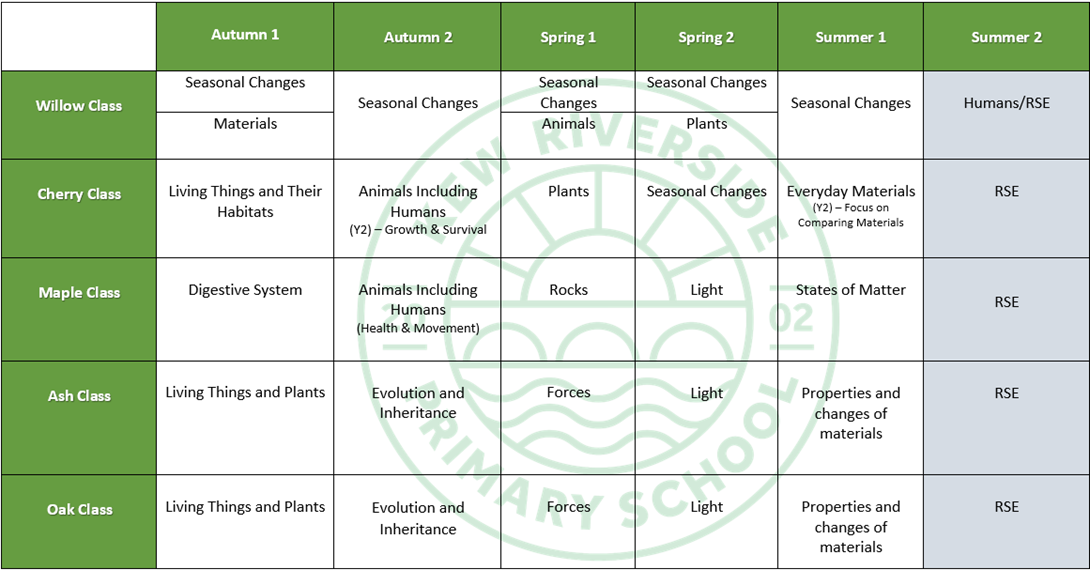
In Reception, children explore Science in real world contexts through continuous provision, whilst Year 1-6 have weekly lessons. Our curriculum is mapped out into specific units which incorporates the skills and knowledge children will work towards and gain by the end of each half term. Our units begin with children having a chance to ask questions and share knowledge, before embarking on their learning journey together. At the end of the topic, children have the opportunity to revisit their earlier questions and to share their new understanding. Science at Kew Riverside follows the national curriculum and ensures children:
- Develop scientific knowledge and conceptual understanding through the specific disciplines of biology, chemistry and physics
- Develop an understanding of the nature, processes and methods of science through different types of science enquiries that help them to answer scientific questions about the world around them
- Are equipped with the scientific knowledge required to understand the uses and implications of science, today and for the future
Pupils build fundamental knowledge of the main scientific concepts across the three disciplines of science: biology, chemistry and physics. They learn about significant scientists and discoveries and the impact of these on our lives.
Biology
- Animals including Humans
- Plants
- Living Things and their Habitats
- Evolution and Inheritance
Pupils develop an understanding of living things and their environments through the study of animals, humans, plants and habitats; covering reproductions, inheritance and evolution through the study of life processes and life cycles.
Chemistry
- Materials
- States of Matter
Pupils learn about states of matter through the study of solids, liquids and gases. They look at the properties of materials, including rocks and fossils, and study reversible and irreversible changes in materials.
Physics
- Light
- Sound
- Electricity
- Forces and Magnets
- Earth and Space
Pupils develop an understanding of the concepts and laws that apply to physics. They study the concept of energy by learning about light, sound and electricity. They develop an understanding of forces by studying and investigating friction, air resistance, gravity and magnets. They learn about Earth and space, studying seasons, day and night, the solar system and beyond.
Science at Kew Riverside lends itself to many cross-curricular links, which are planned in advance and allow for children to meet their English targets, demonstrate maths skills and apply other learning through the subject. Real-life experiences enhance learning in Science and enable children to gain knowledge and skills not just in the classroom, but also through engaging activities such as:
- Visits to our wildlife and pond area
- Trips to Kew Gardens to explore different plants from around the world
- Outdoor learning activities at our residential trips, which are linked to our Science topics
Working scientifically
Through each Science unit, pupils develop their ability and knowledge on how to work scientifically. Children embed the 5 key scientific enquiry types throughout their learning and our pupils learn to use these enquiry strategies confidently and know that different strategies may be needed at different times.
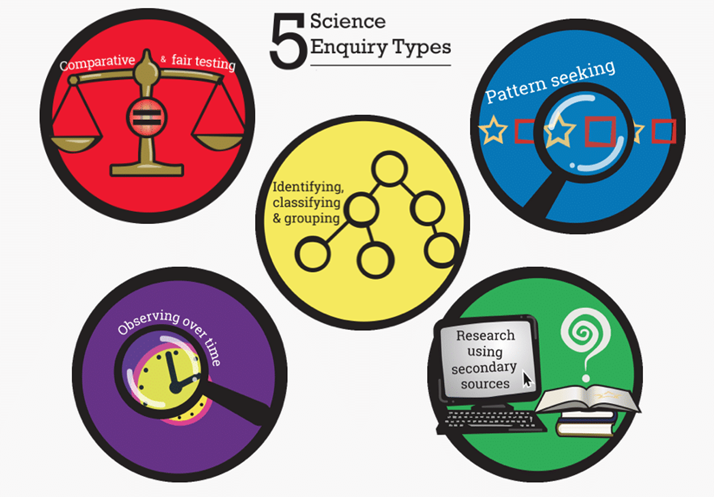
· Observing over time - observing or measuring how one variable changes over time.
· Identifying and classifying- identifying and naming materials/living things and making observations or carrying out tests to organise them into groups.
· Looking for patterns - making observations or carrying out surveys of variables that cannot be easily controlled and looking for relationships between two sets of data.
· Comparative and fair testing - observing or measuring the effect of changing one variable when controlling others.
· Answering questions using secondary sources of evidence - answering questions using data or information that they have not collected first hand.
Impact
Our approach at Kew Riverside Primary School results in a fun, engaging, high-quality Science education that provides children with the foundations and knowledge for understanding the world. Science progress is measured through the child’s ability to obtain sustainable knowledge, remember more and explain more. We measure the impact of our curriculum through the following methods:
- Monitoring of children's understanding, knowledge and skills by the class teacher throughout lessons. This assessment is then used to inform differentiation, support and challenge required by the children.
- Regular revisiting of prior learning through short verbal tests, quizzes and games
- Science book looks and feedback passed on to staff
- Interviewing the pupils about their learning (pupil voice)
- Half-term projects that reflect the learning in lessons
Examples of science work throughout Kew Riverside
Year 1/2
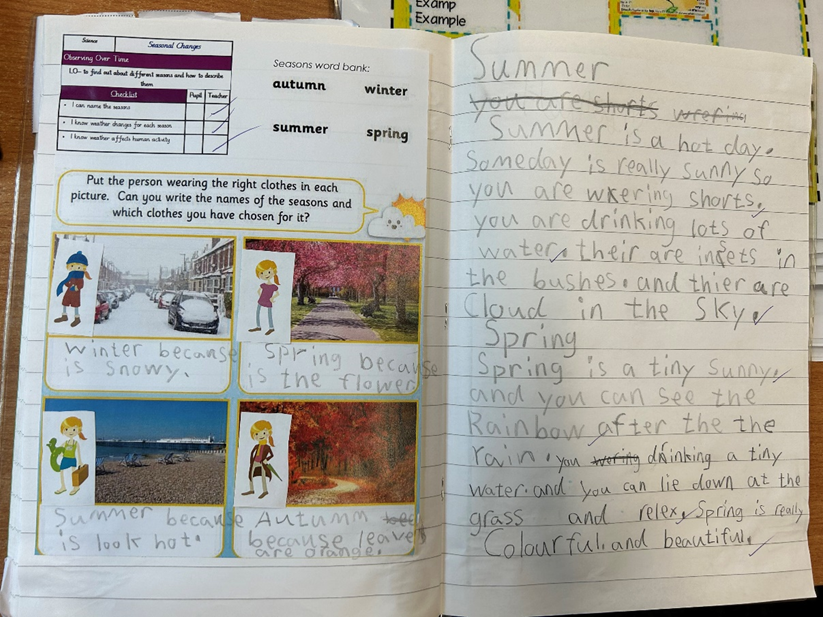
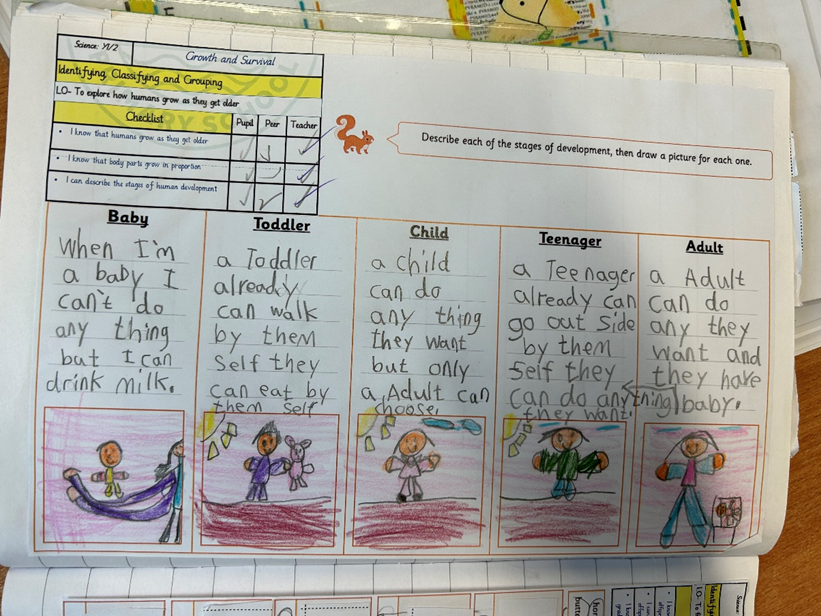
Year 3/4
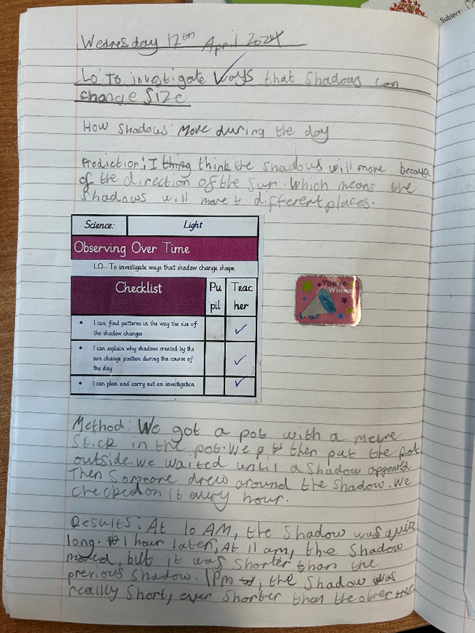
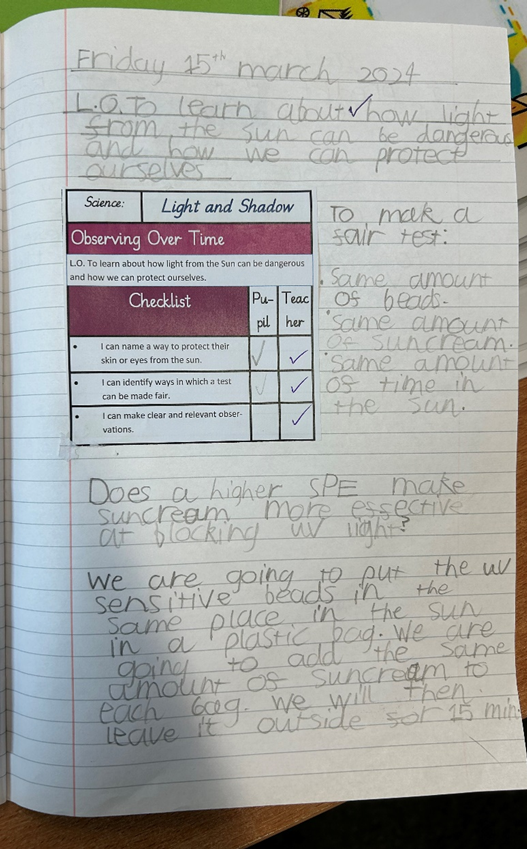
Year 5/6
